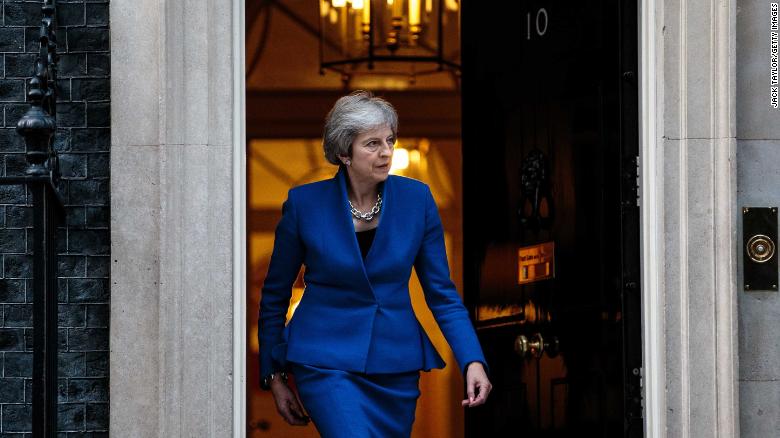
London – Britain has concluded a Brexit deal with the European Union. Now, amid a growing clamor of dissent, Theresa May must sell it to her own side.
Britain’s Prime Minister and her closest aides spent Tuesday evening in a succession of one-on-one meetings with members of her divided Cabinet, in an attempt to persuade them to back it. At 2 p.m. local time Wednesday, in a perilous moment for May, they will gather in Downing Street to pass their verdict.
As ministers trooped into Downing Street to hear May’s pitch, opponents of the deal — many within her own party — urged them to kill it off.
Chief among hardliners’ concerns is that the agreement will tie the UK to the EU’s customs union and parts of the single market free-trade area for years to come, without any say in how the bloc is run.”It is vassal state stuff,” said Boris Johnson, a leading Brexiteer who quit Mays Cabinet earlier this year. “Chuck it out.”
May’s Cabinet is deeply divided between hardline Brexit supporters and others who voted to remain in the EU. Downing Street hopes that she has done enough to convince her senior ministers that the draft text fulfills the result of the 2016 referendum and prevent a mass walkout that would imperil the deal.
But even if she can get it through her Cabinet, there’s no guarantee that she can get it through parliament.
The Democratic Unionist Party, whose 10 MPs props up May’s minority government, said it would vote against it. Sammy Wilson, the party’s Brexit spokesman, wrote on Twitter: “All of the great and the good who were rolled out during the #EURef will be rolled out again in the coming weeks to try and get us to fall into line. We are clear — we will not be voting for this humiliation!”
The main opposition Labour party also indicated that it would vote down the deal. “Given the shambolic nature of the negotiations this is unlikely to be a good deal for Britain,” said Keir Starmer, the party’s Brexit spokesman.
Divorce deal
The conclusion of a draft deal with the European Union on Tuesday was a significant moment for May, ending months of deadlock.
Senior officials in the UK and the rest of the EU had issued dire warnings of a no-deal scenario that could devastate the British economy.
But May’s victory is only the beginning of what is expected to be a protracted and painful political process. Lawmakers in the UK won the right to a “meaningful vote,” which gives them the chance to accept or reject the Brexit deal.
They must also vote on the legislation that turns the text agreed with the European Union into UK law.
Opponents take particular issue with the part of the agreement that deals with the border between Ireland, which remains in the EU, and Northern Ireland, which is part of the EU. Critics say the border agreement would, at least temporarily, tie the UK to the EU’s trading rules without a way out.
“Without a clean exit clause, the United Kingdom would be handcuffed to the European Union with Brussels holding the keys,” said DUP leader Arlene Foster.
If the deal fails to jump the many political hurdles ahead, it would almost certainly be the end of May’s career and Britain would plunge again into political chaos.
A glimpse into the mood in the Commons. will be provdied by Prime Minister’s Questions on Wednesday. The Cabinet meeting, scheduled for after Prime Minister’s questions, will coincide with a gathering of ambassadors from the other 27 EU member nations in Brussels, who will also discuss the draft deal.
While the British government and media have taken the Brexit deal as a breakthrough, EU officials have urged caution, pointing to the long political process that lies ahead.
As reported by CNN
